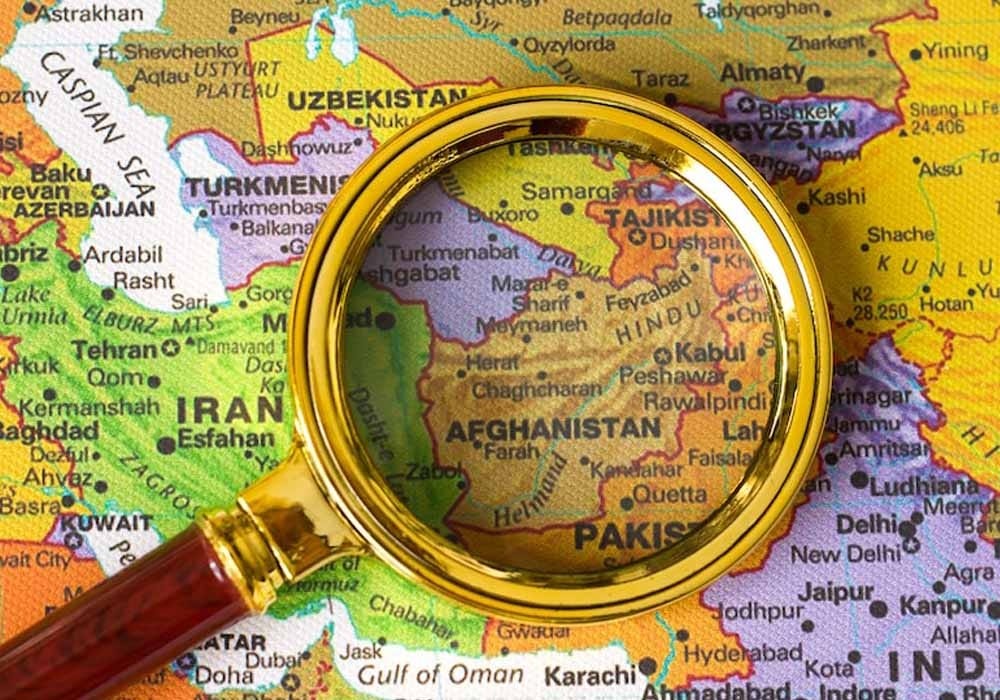PAKAFUZ’s Connectivity Potential Is Totally Dependent On Troubled Pakistani-Taliban Ties
PAKAFUZ isn’t as promising of a project as it initially seemed due to its total dependence on seemingly intractable Pakistani-Taliban tensions and the revival of the North-South Transport Corridor as a viable complementary alternative. That’s not to downplay this project’s geo-economic importance in the best-case scenario that it’s completed and those two’s security dilemma is sustainably resolved, but just to temper expectations about it being a game-changer.
Dawn reported on Tuesday that Pakistan, Afghanistan, and Uzbekistan are poised to sign a joint protocol on connecting their railroads and thus making progress on their planned corridor. Known as PAKAFUZ after the first few letters of each country’s name, it aims to streamline the Central Asian Republics’ (CAR) access to the global economy by linking them with the Indian Ocean via Karachi. For as promising as this project appears, the reality is that it’s totally dependent on troubled Pakistani-Taliban ties.
“The TTP’s Terrorist Threat To Pakistan Is Metastasizing” after this Afghan-based group reportedly incited deadly sectarian clashes in Khyber Pakhtunkhwa and then attacked a military base in largely Pashtun-populated Northern Balochistan. None of this was supposed to happen after the Taliban recaptured control of Afghanistan two years ago, which draws attention to twenty politically inconvenient truths about its ties with Pakistan and proves how much tensions have spiraled out of control since then.
Unless their escalating security dilemma with one another is sustainably resolved, which shows no signs of happening since Pakistan continues cultivating better ties with the Taliban’s American enemies while that group still regards the terrorist-designed TTP as its ally, then PAKAFUZ’s reliability will suffer. It’s in all stakeholders’ interests for there to be a meaningful Pakistani-Taliban rapprochement and not just the sporadic easing of bilateral tensions, but those two “frenemies” presently lack the political will to do so.
At the same time, however, it’s encouraging that they continue making progress on PAKAFUZ as proven by the latest news development reported on by Dawn. This signals that neither of them has lost sight of the bigger picture and the dividends that they everyone stands to reap upon that project’s completion. Having said that, the failure to sustainably resolve their security dilemma could lead to Pakistan and the Taliban exploiting PAKAFUZ to put pressure on one another, thus threatening its viability.
For example, either party could suspend transit across their territory due to whatever the latest dispute with their neighbor might be, after which they’d seek to rally the CARs to their respective side. Regarding those countries whose support Pakistan and the Taliban would be competing for, they might sympathize with the former a lot more than the latter when it comes to most issues, but it’s unlikely that they’d pressure that group out of fear that it could cut off their access to Afghanistan’s mineral resources.
About that, even the partial completion of PAKAFUZ as “AFUZ” could still be beneficial for the CARs since Afghan minerals could be exported to their territory via that railroad, after which they’d either be processed at associated facilities that could be built within their region and/or sent to Russia and/or China. With this business opportunity in mind that some sources estimate to be worth around $1 trillion, the CARs are disinclined take Pakistan’s side over the Taliban’s even if they sincerely sympathize with it.
A supplementary reason why they’re unlikely to get involved in those two’s disputes is that PAKAFUZ is no longer the indispensable corridor for the CARs that it otherwise could have been had significant progress been made on it over the past year. Growing Pakistani-Taliban tensions coupled with Islamabad’s pro-US pivot after April 2022’s post-modern coup against former multipolar Prime Minister Imran Khan created a window of opportunity for reviving the North-South Transport Corridor (NSTC).
Fresh life was breathed into this previously stalled project as a result of the West’s anti-Russian sanctions turning it into the Kremlin’s only reliable means for accessing the global economy. Truth be told, a lot of work remains to be done in order for the NSTC to reach its full potential, but the point is that it’s back in the game and a major force to be reckoned with. This development makes the CARs a lot less dependent on PAKAFUZ since NSTC is a now a viable complementary alternative.
Accordingly, the scenario of continued Pakistani-Taliban tensions creating complications for the CARs’ use of that corridor no longer carries with it all that high of a chance that those countries would either take sides in their dispute or attempt to mediate it. Instead of getting diplomatically embroiled in those two’s imbroglios, they can simply reroute their planned trade along PAKAFUZ to the NSTC’s eastern branch and thus rely on Chabahar instead of Karachi for accessing the global economy.
Reflecting on the insight shared in this analysis, it’s clear that PAKAFUZ isn’t as promising of a project as it initially seemed due to its total dependence on seemingly intractable Pakistani-Taliban tensions and the revival of the NSTC as a viable complementary alternative. That’s not to downplay this project’s geo-economic importance in the best-case scenario that it’s completed and those two’s security dilemma is sustainably resolved, but just to temper expectations about it being a game-changer.


